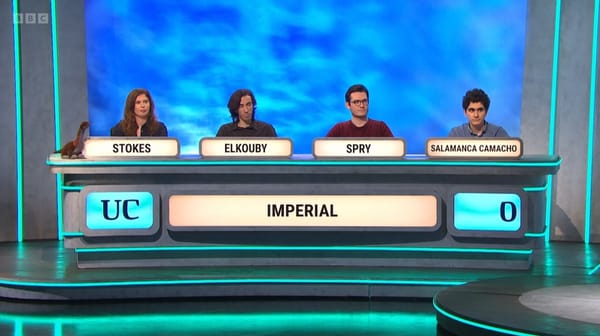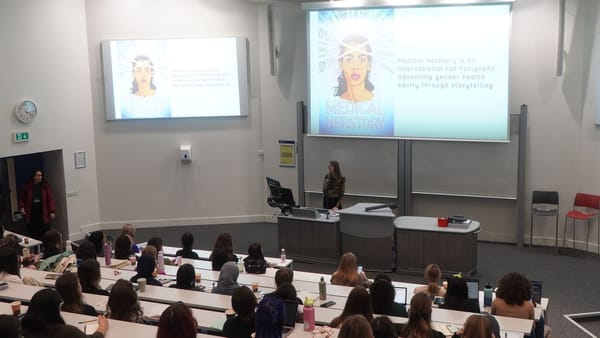A European Citizenship (Part II)
Leonardo Ialongo discusses the value of European sovereignity in an increasingly competitive world

In last week’s article I discussed some of the reasons why European integration is necessary. However in recent years, due to the economic crisis, it has been the shortcomings of the union, rather than its advantages, which have been under the spotlight. This financial crisis, although it originated in America due to the private debt bubble, soon spread in the fertile ground of European public debt. The banks that were impoverished by the crisis could not lend money to the states, which in turn struggled to pay back their debt. The countries not able to cope with debt, and unable to devalue their currency like in the past, were forced to ask the European Union for help. This started the process of bailouts and austerity. It also started to draw criticism towards the Euro. It was deemed too weak and, according to some, destined to fail. I could not agree more. However it is not because the Euro project is wrong or utopic; the Euro was doomed due its systemic weakness. The European jurisdiction, in fact, divides the powers between the ECB and the national governments in a way that does not let them to effectively confront their debt. The ECB has powers to oversee the monetary policies, and yet no control on public debt and no right to issue European bonds; on the other side the national governments have little or no control on monetary policy. This creates an instability that will necessarily crush any attempt at a single currency. There are therefore two options: one is to abandon the Euro; the other is to remove these systemic flaws. If we are to keep the Euro, the symbol of European economic integration, more central European oversight on national debt is necessary, and it needs to be accompanied by the famous Eurobonds. This should be and is the aim for the EU in the short term.
If the analysis of the crisis reveals the systemic weakness of the monetary union, there is another lesson to be learnt. The globalised economy has diminished the power of single states. In the past, a state was a political entity of sufficient power to prevent the market and the private companies from endangering the interests of citizens. Now it seems that the markets and big corporations can influence national policies to the extent of driving countries to impose unpopular legislations, sometimes arguably against the will and interest of their people. To me it seems that this is the real threat to national sovereignty, and that the EU is the best option we have to maintain it. The concept of sovereignty is quite complex, and for clarity, I will be using it in the sense of an institution capable of defending the interests of its members against foreign intrusion. The EU in fact might not always represent the interests of your particular country, but it will defend the wellbeing of the European people as a whole. Therefore if the European Union is more effective in preserving the interests of the European population, it will achieve, on a global scale, the sovereignty that the individual state does not have the power to maintain. So long as the European Union remains a democratic government, it can therefore be the means of protecting popular sovereignty. Recently The Independent affirmed in an article by Mary Dejevsky that: “membership [to the EU] has given the Scots and the Welsh a sense of security that allows them to affirm their national identity in a positive way they were not able to before.” This perfectly underlines the message I am trying to convey. More European economic integration will give the economic security necessary to express national identity and preserve popular sovereignty from external interference.
If Europe wants the support of its people it needs to start a process of democratisation of its institutions.
If I agree with the direction in which Europe is heading, I do not agree with the way it is doing it. The project of a stronger union, to the extent of a federal state, has always been part of the EU since it was envisioned by its founding fathers.However until now, in the words of Jacques Delors, “l’Europe avance le visage masqué” (Europe advances with its face masked). A federal Europe has always been a project of the European political elite, rather than of the people. If this was to begin with a good approach – as it laid the foundations for economic integration – it is now becoming its major drawback. The reason is that this elitist approach has alienated the European population. This is further aggravated by the internal organisation of the Union. All the major posts are appointed by the national governments and the only directly elected body is the European Parliament. However the parliament has very limited powers: it can in fact only vote legislations and amend them but not propose them. Furthermore, the most important leadership figure, the President of the Commission, is appointed by the national governments through the European Council and the parliament can only veto it. All of this complicated bureaucracy undermines the principle of direct representation. If Europe wants the support of its people it needs to start a process of democratisation of its institutions. This way it will also gain the democratic legitimisation it needs to legislate and continue the process of integration.
The issue however lies in the reformation of these institutions. It was often the national governments that stopped such a process for fear of losing their national sovereignty. As summarised in the Spinelli Group’s Manifesto,
“[…] whereas the formidable challenges of a manifold crisis demand common responses, drawn at least at European level, too many politicians fall tempted to believing in national salvation only. In a time of interdependence and a globalised world, clinging to national sovereignties and intergovernmentalism is not only warfare against the European spirit; it is but an addiction to political impotence.”
National salvation is an illusion fed to the public by demagogic Eurosceptics, who use a narrative that appeals to the nationalist feelings of European citizens. This is especially strong in Britain where the shadow of the lost empire still triggers national pride. The problem lies in what I will call cultural integration. The feeling of being a European citizen, and caring about what happens outside your borders is fundamental for the progress of the EU. If this sentiment is in some way developing in some Eurozone countries, in Britain – where Europe still means across the channel – it seems like an impossible request. It is therefore cultural integration that should be having the highest priority for the EU. This reminds me of the famous words of Massimo D’Azeglio, one of the founding fathers of Italy, “Pur troppo s’è fatta l’Italia, ma non si fanno gl’Italiani” (Translated to: “Unfortunately we have created Italy, and yet not the Italians”).
Similarly in Europe, until the consciousness of European citizenship develops, Europe will remain a weak entity. The crisis and the lack of direct democratic representation seriously undermine any attempt at cultural integration. I feel it is our responsibility as European Citizens to make our voices heard and demand more democratic representation, so that the European Union can become a direct expression of our popular sovereignty.





